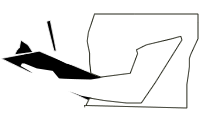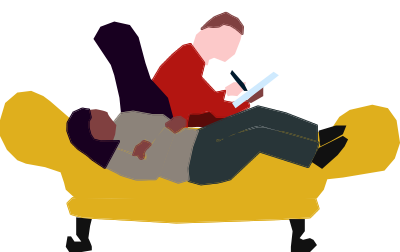Assess

Information gathering: How to assess your patient Once the subject has been broached, the next step is to gather information from the patient. This can be done by taking the patient's dietary and exercise history, as well as biomedical, psychological and social assessments.
ACTS
You might find it helpful to begin with the acronym ‘ACTS’ which includes a patient-centred broaching question:
- A: Ask for permission to ask
- C: Elicit the patient’s Concerns
- T: Take me through a Typical Day
- S: Find out about any Special requirements

Patient Scenario: Beverley
Beverley attended your clinic last month for contraceptive advice. You broached the topic then, and she agreed to book another appointment to speak about her health in general as she had concerns about her family history of heart disease and high blood pressure.
She says she feels generally fit and well.
Beverley has returned to your clinic. After listening to her health concerns you decide she is ready for a behavioural change consultation.
Taking a dietary history

Patient Scenario: Beverley
Begin by taking a dietary history using the acronym ACTS (Ask to ask, Concerns, Typical day, Special requirements). Enter your questions and click 'Submit' to compare it with a suggested alternative.
A
Ask the patient’s permission to broach this sensitive topic
SubmitCan I ask you about your weight?
 Yes, I'm happy to talk about it.
Yes, I'm happy to talk about it.
C
Let the patient talk about their concerns first: motivations, barriers, beliefs, stressors, readiness to change
SubmitDo you have any concerns over your weight? / Are you happy with your weight?
 I don’t want to be skinny, as in my culture being thin is seen as unhealthy, and my boyfriend likes my current size. But I am concerned about developing high blood pressure like my sister or heart disease like my parents.
I don’t want to be skinny, as in my culture being thin is seen as unhealthy, and my boyfriend likes my current size. But I am concerned about developing high blood pressure like my sister or heart disease like my parents.
T
Take a dietary history to enable a meaningful plan to be negotiated
SubmitCan you take me through a typical day’s food and drink?
 I have toast and coffee for breakfast and a sandwich lunch but I have take-aways most days after work as I feel too tired to cook. I drink soft drinks and fruit juices two to three times a day and we often share biscuits and cakes at work. At the weekend I cook large traditional meals that include meat stews, beans and rice, and we often eat in front of the TV in the evenings.
I have toast and coffee for breakfast and a sandwich lunch but I have take-aways most days after work as I feel too tired to cook. I drink soft drinks and fruit juices two to three times a day and we often share biscuits and cakes at work. At the weekend I cook large traditional meals that include meat stews, beans and rice, and we often eat in front of the TV in the evenings.
S
Understand medical, cultural, religious and magazine-driven behaviours.
SubmitDo you eat a special diet?
 No, I don't.
No, I don't.
Adapted from P. Booton 2010


I opened up the conversation with the question “may I ask you about your weight?” which was suggested in one of the campus block lectures and it felt really easy and appropriate to use. She replied with a very enthusiastic “yes!”
Taking an exercise history

Patient Scenario: Beverley
You can also use the acronym ‘ACTS’ to ask Beverly about her exercise history. You may prefer to use a standard physical activity questionnaire such as GPPAQ . Enter your question and click 'Submit' to compare it with a suggested alternative:
A
Ask the patient’s permission to broach the topic
Can I Ask you about exercise?
 Well, I don't do any 'proper' exercise.
Well, I don't do any 'proper' exercise.
C
Let the patient talk first: motivations, barriers, beliefs, stressors, readiness to change
Do you have any Concerns about exercise? Are you happy with how much exercise you get?
 I don’t have much time for exercise and find it quite boring. I joined a gym but didn’t have the motivation to go alone. I'm worried my bad back might get worse if I 'over do it'.
I don’t have much time for exercise and find it quite boring. I joined a gym but didn’t have the motivation to go alone. I'm worried my bad back might get worse if I 'over do it'.
T
How often are they warm and out of breath?
Can you take me through a Typical week’s excercise?
 I normally do a five minute walk to the bus stop and about the same to buy lunch. Sometimes I take the stairs up three flights, but it makes me out of breath. I like dancing (once a fortnight) and going for a walks when the weather is nice.
I normally do a five minute walk to the bus stop and about the same to buy lunch. Sometimes I take the stairs up three flights, but it makes me out of breath. I like dancing (once a fortnight) and going for a walks when the weather is nice.
S
Understanding medical, cultural and religious needs
Do you have any Special exercise requirements?
 I do get lower back pain occasionally.
I do get lower back pain occasionally.
Adapted from P. Booton 2010
Other Assessments
Your assessment should cover:
- Biomedical aspects: such as BMI, BP, medication, and other investigations if further pathology (diabetes, sleep apnoea, thyroid disease, PCOS etc.) is suspected
- Psychological aspects: low mood and/or disturbed eating behaviour might indicate depression or binge eating disorder which may be more appropriately addressed through CBT
- Social aspects: how is their weight impacting on their life, and how are social factors impacting on their weight e.g. lack of cooking facilities, regular takeaway food etc.
Psychosocial assessment
Low mood and/or disturbed eating behaviour might indicate depression or binge eating disorder which may be more appropriately addressed through psychological interventions such as CBT.
Formulate some questions you would ask to assess the patient:
Here are some examples:

What do you believe has caused you to gain weight?

I think it is probably the stress of my new job as I have put on weight since I started buying take-aways more regularly.

How has your weight affected you?

I don’t feel it has affected me badly, though I do get out of breath more easily when climbing stairs.

What are your barriers and stressors?

I don’t feel able to cook for myself during the week, as I'm so tired after work..

Are you ready to make changes?

I don’t feel that losing weight is important to me at the moment. (We have not yet explored the link between blood pressure, heart health and weight.)

Could this be an eating disorder?
She doesn't feel anxious or depressed. She has regular meals that are not suggestive of an eating disorder.

Biomedical assessment
As well as taking a dietary, exercise and psychosocial history, there are biomedical aspects that should attended to. In a busy clinic, these may be done by the healthcare assistant or other members of the healthcare team. NICE has published guidelines, however you may have local protocols for which tests to offer.
For all patients:
- BMI
- Past medical, family and drug histories

Also consider:
- BP
- Fasting glucose and lipids
- LFTs and TFTs
- Epworth scale for sleep apnoea

Patient Scenario: Beverley

Patient Details
- Name: Beverley Buthelezi
- Age: 24
- Ethnicity: Black South African
- BMI: 35
- Family Background: family history of hypertension and heart disease
- Last Appointment: 1 month ago for contraceptive advice
Summary
Beverley attended your clinic last month for contraceptive advice. You broached the topic then, and she agreed to book another appointment to speak about her health in general as she had concerns about her family history of heart disease and high blood pressure.
She says she feels generally fit and well.
Based on what you have learnt about Beverley's history so far, which biomedical tests would you recommend (select more than one)?
